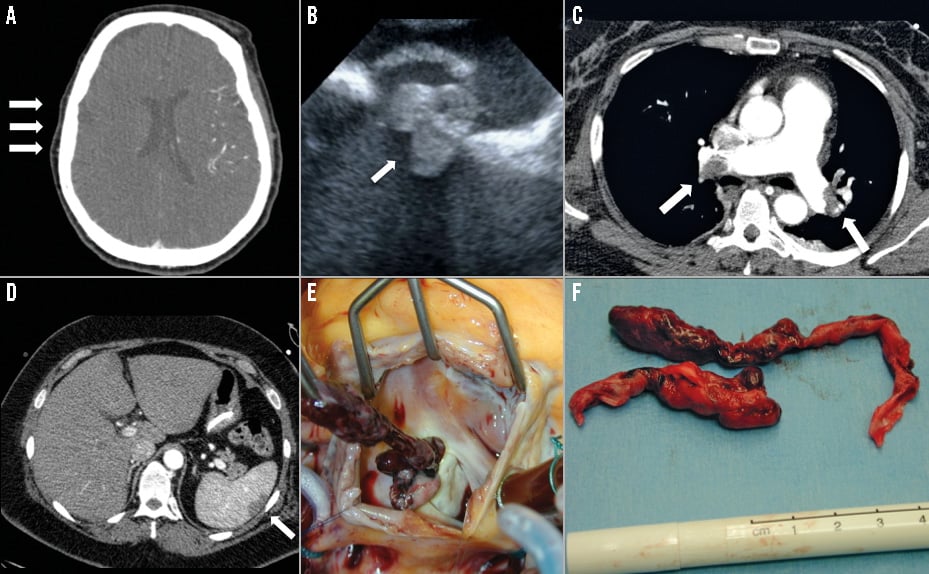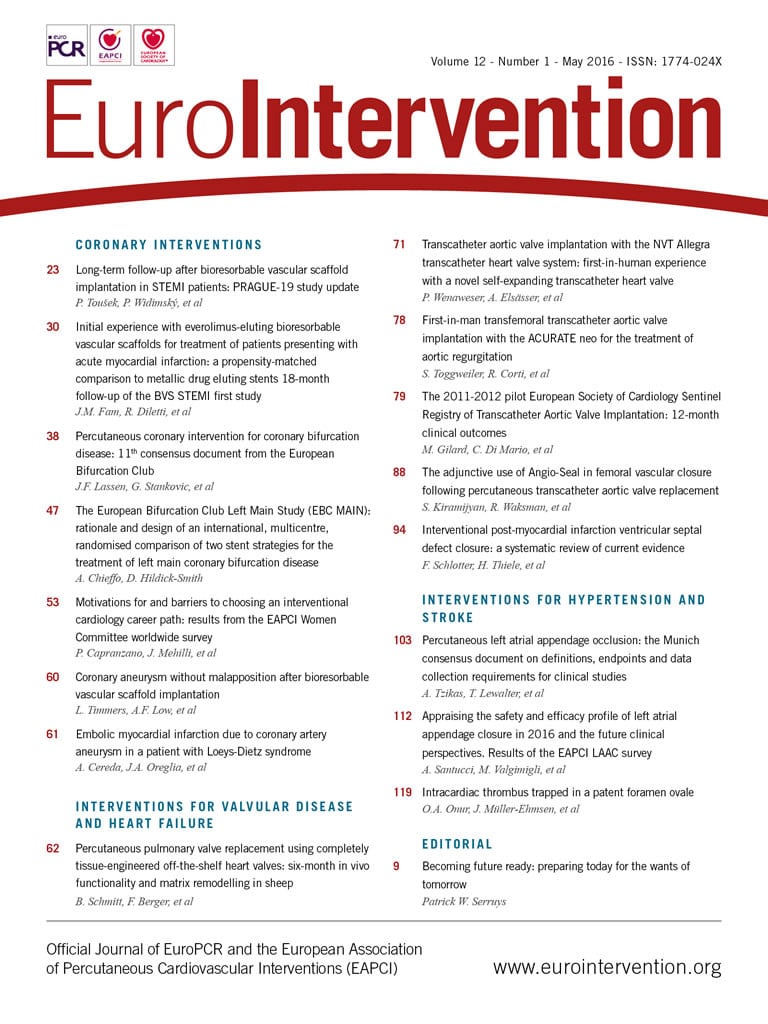

A 57-year-old woman was admitted to the University Hospital of Cologne after her husband had found her unconscious. Upon admission, gaze deviation to the right was observed. A cerebral CT scan revealed right hemispheric hypoperfusion (Panel A) and thrombolysis was performed. Subsequently, transoesophageal echocardiography showed a thrombus, which was trapped in a patent foramen ovale (Panel B, Moving image 1). A CT scan of the thorax and the abdomen revealed multiple pulmonary embolisms and an infarction of the spleen (Panel C, Panel D). A thrombectomy of the thrombus, with a length of 12 cm, and a closure of the patent foramen ovale were performed (Panel E, Panel F). Follow-up imaging revealed only a small cerebral infarct. Neurological examination was inconspicuous.
A consent form was obtained from the patient even though she cannot be personally identified from the images contained in this article.
Conflict of interest statement
The authors have no conflicts of interest to declare.
Supplementary data
Moving image 1. Thrombus trapped in a patent foramen ovale. Transoesophageal echocardiography showing a thrombus (arrowheads) in the right atrium, trapped in a patent foramen ovale (arrow), and extending into the left atrium. LA: left atrium; RA: right atrium
Supplementary data
To read the full content of this article, please download the PDF.
Thrombus trapped in a patent foramen ovale. Transoesophageal echocardiography showing a thrombus (arrowheads) in the right atrium, trapped in a patent foramen ovale (arrow), and extending into the left atrium. LA: left atrium; RA: right atrium

